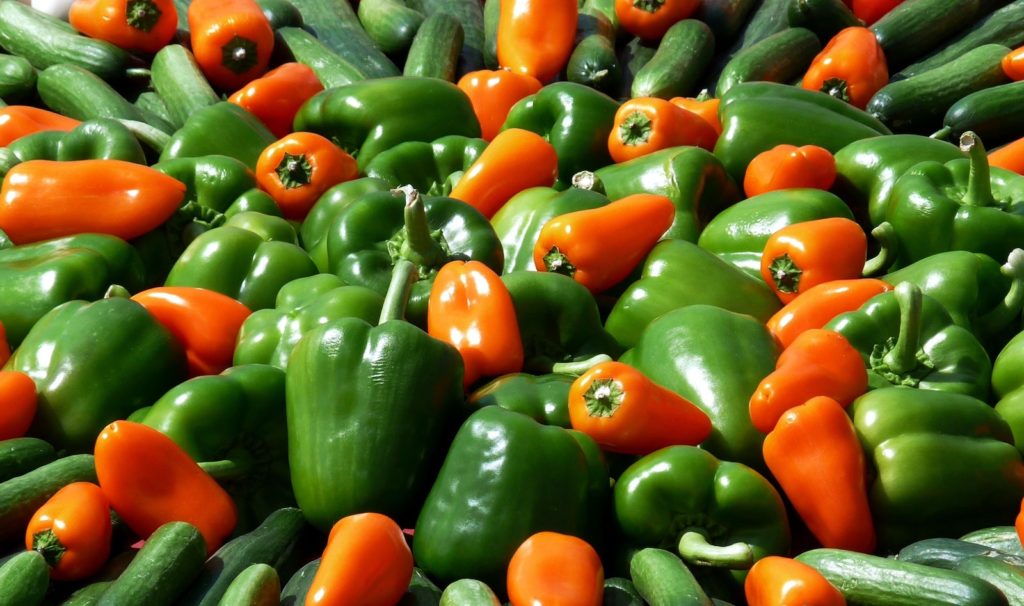Most vegetables don’t affect net carbs since they have fiber.
When eating a variety of foods on keto, it’s important to understand the net carbs that each provides.
Net carbs are total carbs minus fiber. In other words, they account for the amount of carbohydrate in a food minus any carbohydrate consumed in the form of fiber.
The higher the net carb count in a particular food, the less of it you must eat on keto, preferably limiting net carbs to under 40 grams per day.
In this article, we’ll discuss if vegetables affect net carbs or not, & which vegetables have the least impact on net carbs.
Total Carbs vs Net Carbs
At stores, you’ve probably seen a keto food that says something like: “Only 5 Net Carbs”
Then, you look at the carb count on the back & it says something ridiculous like 18 grams of carbs.
Well, what’s even the difference between the two?
What Is the Difference Between Total Carbs and Net Carbs?
Total carbs are the number of total carbohydrates in food. Net carbs are the total amount of carbohydrates in a food, minus the fiber & artificial sweeteners. People on keto usually only count net carbs because they’re the only carbs that affect insulin.
For example, a salad may have 10 grams of total carbs, making some people avoid it on keto. However, if it has let’s say 7 grams of fiber, then its net carbs are only 3 grams.
If you would’ve avoided the salad, you would’ve missed out on all of its health benefits to lower your overall carb count.
That’s why it’s smarter to count net carbs over total carbs.
Do Vegetables Affect Net Carbs?
The effect that vegetables have on net carbs depends on the specific food in question. Overall, the majority of vegetables have a very low impact on net carbs, less than 10 grams per serving. However, higher-carb vegetables like beans, carrots, corn, potatoes, etc, have a higher net carb count.
Some vegetables, like broccoli, cauliflower, lettuce, cucumbers, and tomatoes, are low carb and have few net carbs. While others, like beans, carrots, corn, & potatoes, have a higher net carb count, so they do affect net carbs.
Which Vegetables Have the Least Impact on Net Carbs?
The lowest net carb vegetables are considered to be:
- Spinach — 1 net carb per cup, raw
- Collard Greens — 1 net carb per cup, raw
- Lettuce — 1 net carb per cup
- Celery — 1 net carb per cup
- Asparagus — 2 net carbs per cup
- Mushrooms — 2 net carbs per cup
- Zucchini — 3 net carbs per cup
- Broccoli — 3 net carbs per cup
- Cauliflower — 3 net carbs per cup
- Cucumbers — 3 net carbs per cup
- Okra — 4 net carbs per cup
- Avocados — 4 net carbs per avocado
- Tomatoes — 5 net carbs per cup
- Eggplant — 6 net carbs per cup, cooked
Which Vegetables Have the Most Impact on Net Carbs?
The highest net carb vegetables are considered to be:
- Carrots — 9 net carbs per cup, raw
- Onions — 11 net carbs per onion
- Peas — 16 net carbs per cup, cooked
- Potatoes — 56 net carbs per medium-sized potato (6 oz)
- Corn — 111 net carbs per cup
Conclusion
Vegetables are rich in fiber, vitamins, minerals, and other nutrients that promote good health for people on keto. While most vegetables are low in net carbohydrates, some vegetables have a higher net carb count. It’s important to make sure you’re not eating the high-net-carb ones to stay in ketosis.
If you’re interested in starting a keto diet, here’s my article detailing the benefits of keto & how to get started.
- Can You Still Lose Weight If You Aren’t in Ketosis? - February 8, 2023
- Can the Keto Diet Help With Depression? - February 8, 2023
- Why Does Processed Food Make You Fat? - January 2, 2023




